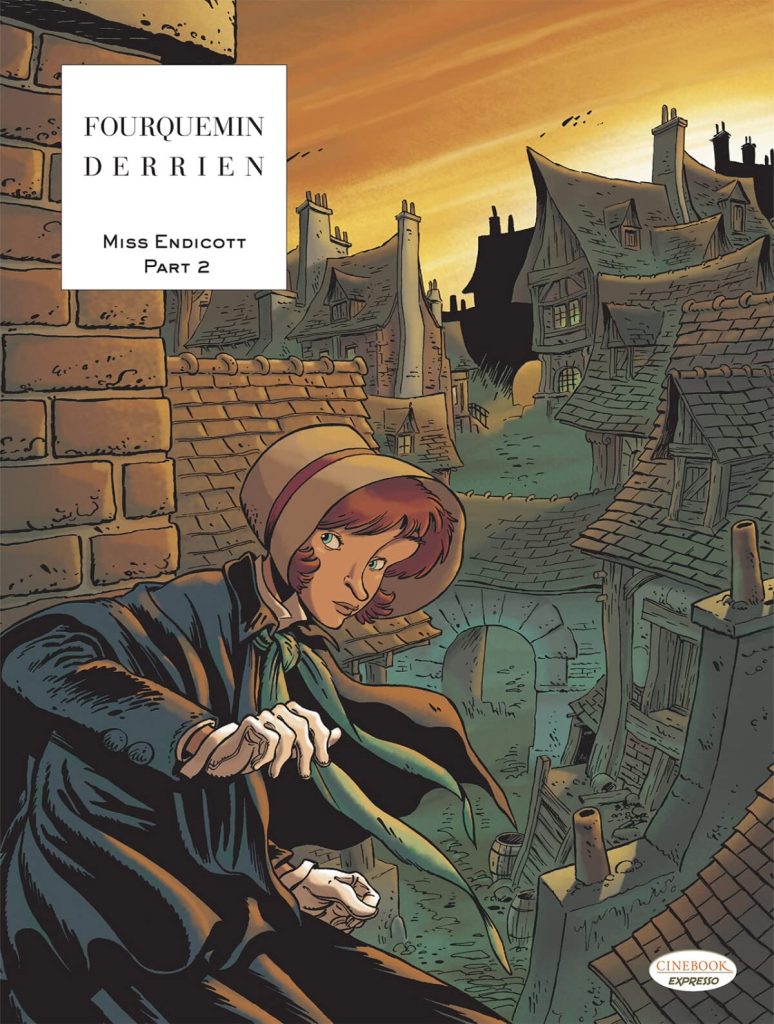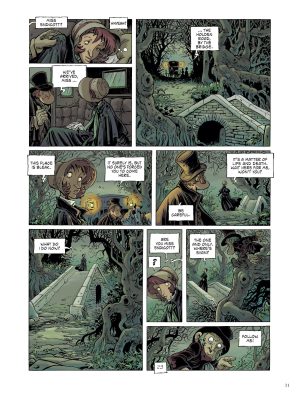Review by Frank Plowright
Prudence Endicott returned from travelling abroad on her mother’s death, and decided to take on the family trade of Conciliator, someone who sorts out problems in the neighbourhood. That’s in a large English city during the 1800s in the early days of industrialisation. Miss Endicott is persistent and capable, and not very easily intimidated by those who’d threaten her. In Part 1 she discovered a vast network of tunnels beneath the city, and ill-intentioned people living there maintaining some machinery designed for a nefarious purpose. However, Jean-Christophe Derrien saved his biggest shock for the final page, when he revealed that Marguerite Endicott hadn’t died after all, and was well aware of the mysterious Master and his threatening activities.
Part 2 opens with a credible explanation as to why Mrs Endicott is alive, and reintroduces the insecurities Miss Endicott has about living up to her mother’s reputation. It also considerably broadens the tools of the Conciliator’s trade as it establishes two distinct missions. While returning Mrs Endicott made for a good surprise, it’s at the cost of weakening the overall premise. It certainly weakens Miss Endicott, as for long spells she’s no longer the star of her own story when considerable space is given over to her mother’s activities, and her mother may be more experienced, but she’s not as likeable.
On the positive side, Miss Endicott looks even more spectacular than before as there’s different locations now beautifully brought to life by Xavier Fourquemin, such as the spooky park on the sample art.
Also occupying considerable space as this volume continues is the villain of the piece, whose plans come to fruition. Although spectacularly well drawn, they ultimately lack ambition and the way they’re stopped is too staged and sentimental.
While Derrien was always building toward something, Part 1 has far more charm than Part 2, which is a standard adventure story needing more focus on the title character. Credit to Derrien, though, for a lack of sentimentality about the ending.





